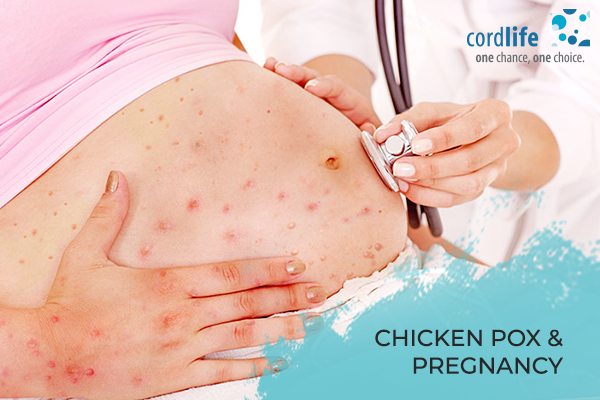Table of Contents
You may be immune if you’ve had chicken pox before, especially if you’ve been vaccinated. The prevention rate is as high as 80-85% for ones who’ve received the vaccination. Hence, whilst the chances are low, but there are few women who do get chicken pox during their pregnancy. The approximate range would be about 1 to 5 cases per 10,000 pregnancies in the United States.
So, if you have been unfortunately diagnosed with chicken pox during your pregnancy, then there is a slight chance that the little life growing inside of you may also be affected.
The chicken pox causes a extremely infectious, blister-like rash which also causes severe itchiness. The first complication that you may come across if you have contracted chicken pox during pregnancy is pneumonia. How your baby is affected by this disease completely depends on the period of pregnancy that you are currently in.
Congenital varicella syndrome, which is a rare group of serious birth defects, could be a possible result if you have developed chicken pox during the first 20 weeks of pregnancy. The risk of your baby getting the Congenital varicella syndrome is far greater, if the same has occurred specifically between 8 and 20 weeks of the pregnancy. Scarring of the skin, the underdevelopment of the arms and legs, inflammation of the eyes, and restricted brain development are some of the effects if the baby contracts the Congenital varicella syndrome.
Neonatal varicella is another possible life-threatening infection that the baby may be at risk, if the mother-to-be has contracted chicken pox a few days prior to delivery upto 48 hours postpartum.
In case you have never been vaccinated for chicken pox and you end up having it during the pregnancy, you must get in touch with your gynecologist or obstetrician immediately. An immune globulin product injection may be recommended during these circumstances as this particular injection has antibodies that provides protection and fights against the chicken pox virus. If the injection is pushed within the first ten days of the virus exposure, it greatly aids in reducing the seriousness of the condition. As the congenital varicella syndrome is such a rare condition, it still has not been properly established if this route of treatment in any manner helps to protect the baby in the womb from being affected by this condition too.
The alternate method of treatment that your gynecologist or obstetrician may opt for is to prescribe oral antiviral drugs. With timely intake of the prescribed oral medication, it largely helps to mitigate the seriousness of the condition and reduces the risk of complications too. If you have the condition at the time of your due date, the healthcare provider may immediately inject an immune globulin product to your baby post delivery. This will help thwart or decrease the severity of the condition to a great extent. In the scenario that your baby is born with the chicken pox virus, the healthcare provider will put your baby on antiviral drugs immediately.
So, in case you’ve not been vaccinated, how can you help reduce the chances of contracting this highly contagious disease during your pregnancy?
There are two things that you must ensure in a situation like this. If you know of anyone who is suffering from chicken pox or has been through the disease in the last three weeks, do not have any contact with such a person. Additionally, if you know of anyone suffering from shingles, avoid contact with them as well.
